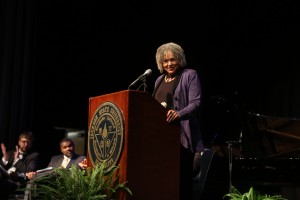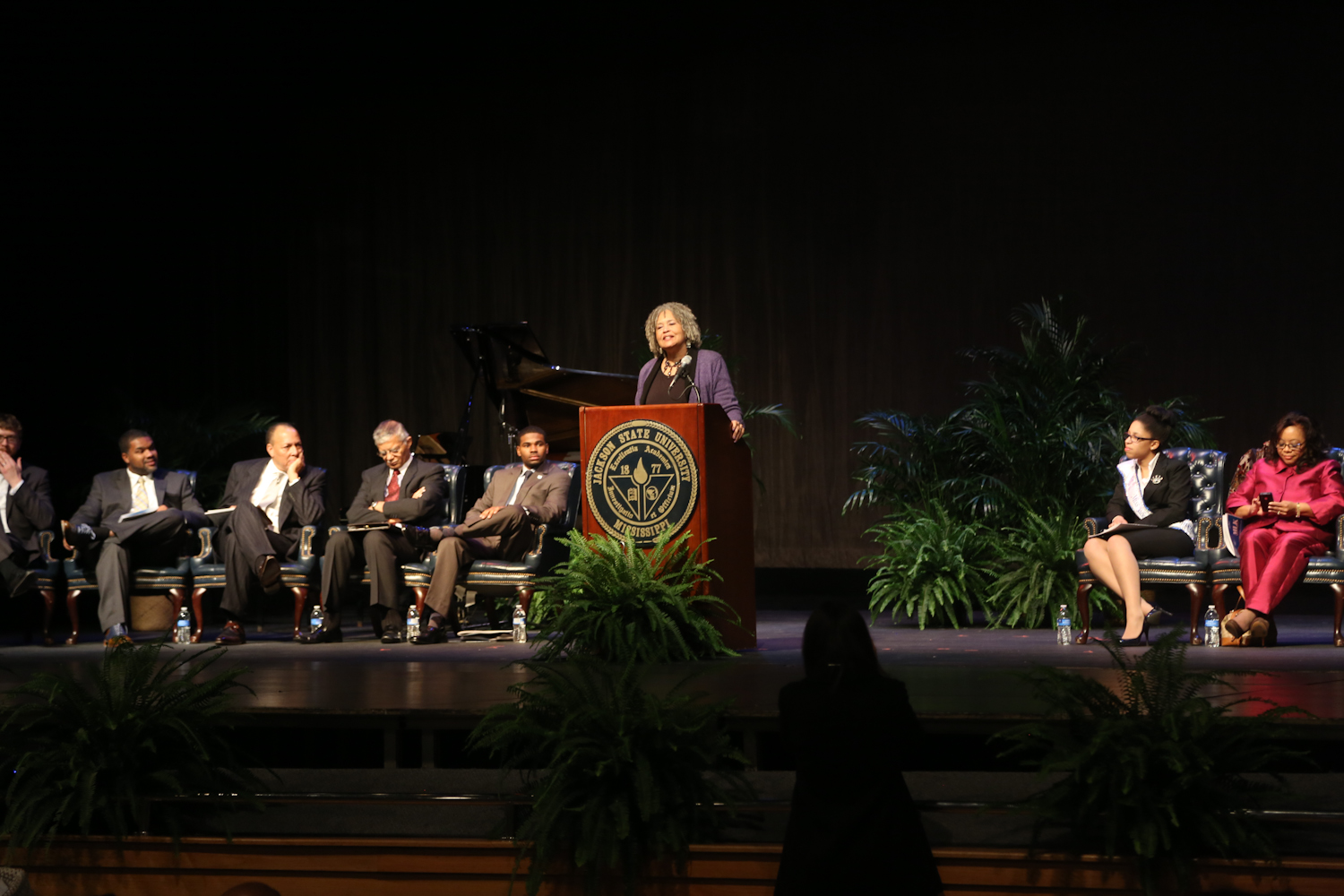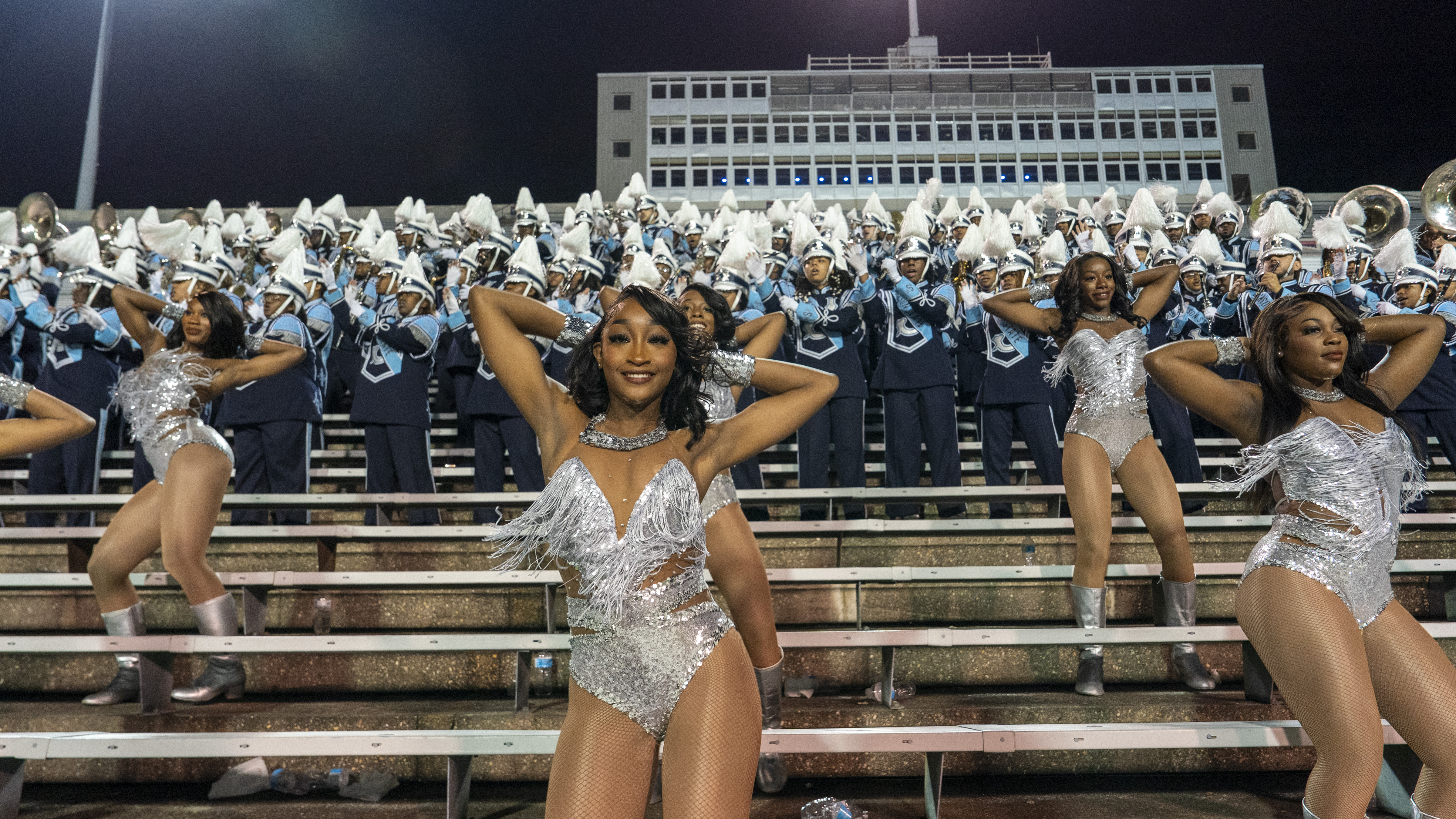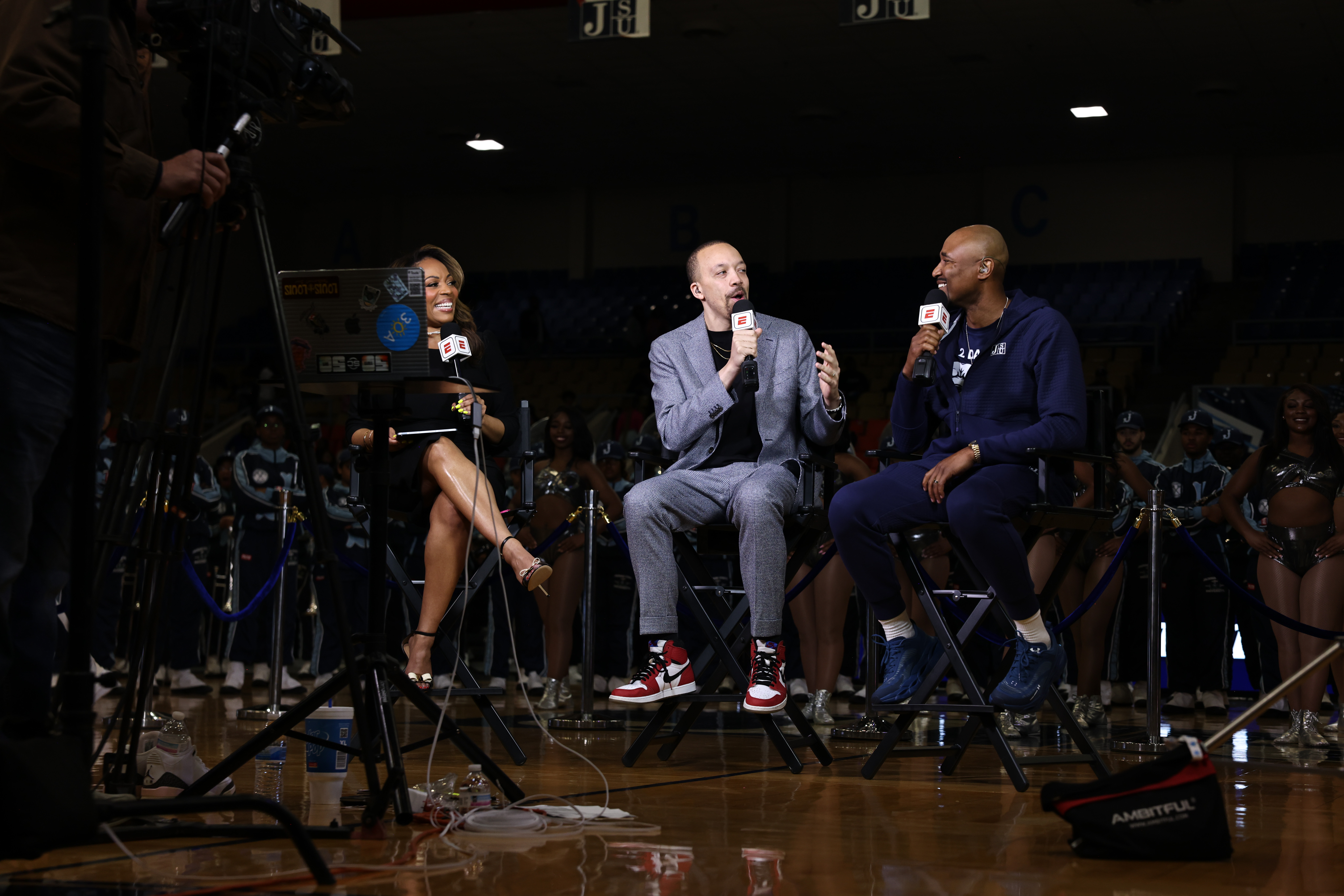(Jackson, Miss.) – As a black girl growing up in the South in the 1940s and 1950s, Charlayne Hunter-Gault’s ambition was to become a reporter like her comic strip hero, Brenda Starr.
It didn’t matter that the fictional character with flame-red hair and blue eyes looked nothing like the young Charlayne. It didn’t matter that a black, female reporter at a white newspaper was almost unheard of when America’s South was under the stifling grip of segregation. Becoming a reporter was Hunter-Gault’s dream, and she wouldn’t be denied.

Hunter-Gault gave the keynote at the 2014 Martin Luther King Jr. Birthday Convocation at Jackson State University on Friday, Jan. 17, and while doing so, acknowledged that her career is a reflection of the dream King had for black Americans.
She recalled his, “I Have a Dream” speech, delivered in August 1963 during the March on Washington.
“What I realized was that Martin Luther King was preaching his own eulogy. He was making sure he left us with a layer of armor for the coming conflicts. He said he had a dream one day this nation would rise up and live out its dream.”
The convocation is held annually and organized by the Margaret Walker Center for the Study of the African American Experience.
Hunter-Gault was selected as speaker, in part, because she’s broken barriers during her lifetime. She was the first black female enrolled at the University in Georgia and the first black female writer for The New Yorker magazine. She’s worked as a journalist for more than 40 years, including stints at NPR, PBS and CNN. She credits much of her success to King and others who were part of the civil rights movement.
“I consider myself to be among the most fortunate beings to have been in close proximity of many of those giants as a child of the movement. They were all joined in one idea of freedom, justice and equality,” Hunter-Gault told a crowd of nearly 1,000 gathered at Rose E. McCoy Auditorium.
Flanked by JSU Provost James C. Renick and Jackson Mayor Chokwe Lumumba, Hunter-Gault shared her experiences with the movement and explained that she’s devoted her career to the “pursuit of human rights.”
Hunter-Gault said her mother was among those “giants” who paved the way for the generations that followed.
“My mother never told me that the dream of a little black girl had to be filtered through the lens of white denial,” she said.
Hunter-Gault has worked with all forms of media. She joined NPR in 1997 after 20 years with PBS, where she had worked as a national correspondence for NewsHour with Jim Lehrer. She began her journalism career as a reporter for The New Yorker, to which she still contributes, then worked as a local news anchor for WRC-TV in Washington, D.C., and as the Harlem bureau chief for The New York Times.
She joined CNN in April 1999 as the network’s chief correspondent in Africa and was awarded a Peabody in 1998 for her coverage of the continent. In 2005, she returned to NPR as a special correspondent. She has also served as Africa bureau chief for Essence magazine.
She encouraged the audience to continue the work begun by King, who was assassinated in 1968 in Memphis, Tenn.
“I ask you today to commit, to walk and never get weary, to the streets of Jackson, Miss., to South Africa and to countries East and West,” Hunter-Gault said.
In his remarks, Lumumba also urged civic activism.
“We’re at a point in history where people must be in control of the government. We must have government used as a tool for the liberation of people. It is important that (Jackson State University) is preparing people to fulfill that role,” he said.
Renick reminded the students that they, too, represented the “embodiment” of King’s dream.
Whitney Gibson, a junior from Gulfport majoring in mass communications, said she read about King in high school and would have liked to have met him.
“I would ask him if our generation was truly living out his dream,” Gibson said. “I’d like to think he’d say ‘yes.’”








Leave a Reply